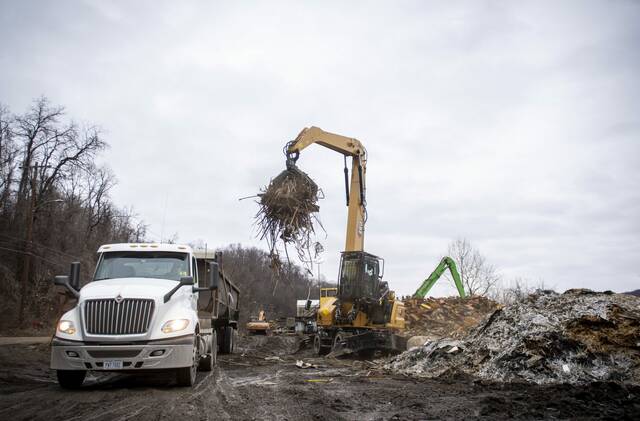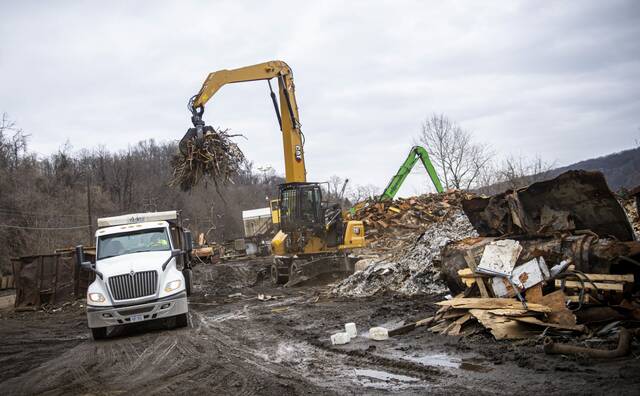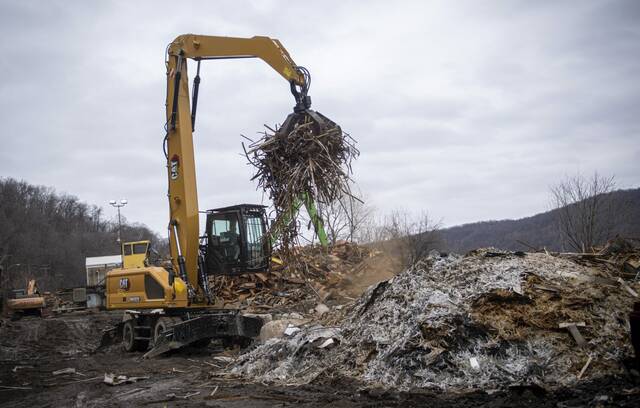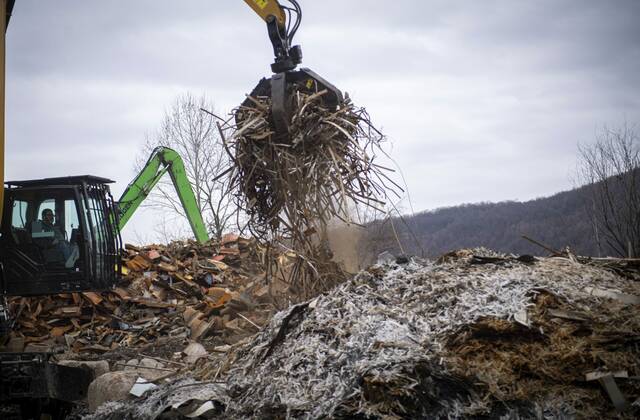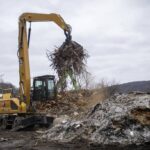If the stock market is any indication, domestic steel and aluminum manufacturers can expect a boost from the 25% import tax on these materials imposed by President Donald Trump.
U.S. Steel, Alcoa and a slew of other companies that stand to benefit from Monday’s executive order have seen their stock prices jump by around 5% this week.
Industry analysts, though, say pain could be on the way for adjacent sectors.
Automakers and home builders will be among the hardest hit, according to Ryan Young, a senior economist with the libertarian Competitive Enterprise Institute, as higher prices for steel and aluminum ripple throughout the economy.
Chad Weaver, president of Adams Township-based Weaver Homes, expects prices to creep up for structural steel and electrical equipment made with aluminum.
Even so, he said, tariffs won’t take a major toll on his business, which is heavily based on residential subdivisions.
“It’ll take the market a little bit of time to react to it, I’m sure,” Weaver said.
Ted Tomson, head of Tomson Scrap Metal in Brackenridge, isn’t bracing for much of an impact, either, even as the Recycled Materials Association warns of incoming challenges for the sector because of the amount of scrap that comes from Canada and Mexico. Tomson said his business doesn’t rely on imports.
Scrap metal often is melted down and used to make new steel.
Some business owners in Western Pennsylvania may be taking a wait-and-see approach, but tariff skeptics fear challenges lie ahead.
Trump instituted similar tariffs in 2018, taxing steel imports at 25% and aluminum imports at 10%. The targeted industries gained 1,000 jobs — but about 75,000 jobs disappeared in other sectors, according to researchers at Harvard University and the University of California, Davis.
Worse yet, the American steel industry remains weak relative to China, Japan and other countries, in Young’s view.
“Doing more of the same thing probably isn’t going to have a different result,” Young said.
Chris Masciantonio, executive director of the Pennsylvania Steel Alliance, stuck up for the previous round of tariffs, lauding them as “very successful” for U.S. steelmakers as well as mining, energy production and other industries behind steel mill operations.
National steel manufacturers with a presence in the Pittsburgh area include U.S. Steel, with its Mon Valley Works, and Cleveland-Cliffs, which does not make any steel in the region but has a stainless steel finishing facility in Butler.
U.S. Steel applauded the decision, adding the country must “confront the threat posed by Chinese dominance in steel making.”
China makes as much or more steel and aluminum each year than the rest of the world combined. Some of that reaches the U.S., either directly or through other countries, subjecting domestic companies to competition they often paint as unfair.
Cleveland-Cliffs did not return a request for comment.
ATI Technologies, which produces stainless steel and other alloys at its nine facilities in Pennsylvania, is “assessing the administration’s overall trade and tariff policies to understand how ATI, our customers, and the overall U.S. supply chain may be affected,” spokeswoman Natalie Gillespie said.
Pittsburgh-based aluminum maker Alcoa declined to comment.
Arconic, another aluminum producer headquartered in the city, did not return a request for comment.
In a statement, Aluminum Association President and CEO Charles Johnson said the protections for domestic manufacturers are appreciated, but more smelting capacity is needed in the U.S. to meet demand for aluminum.
Despite expected short-term employment gains for steel and aluminum workers, the United Steelworkers condemned Trump’s move as disrupting supply chains and undermining economic cooperation with Canada, where many of the union’s members work.
Some U.S. allies, including Canada, were able to negotiate exemptions from the first Trump administration’s tariffs. Others struck deals for import quotas.
This time, Trump said no country is off the hook — at least for now.
Altogether, MEPS International steel industry analyst Laura Hodges sees the protectionist move as shortsighted, and the benefits to steel and aluminum manufacturers as likely to be short-lived.
“I think in the near-term, it would be good for revenue,” Hodges said. “In the longer term … as you make something more expensive, the demand over time will sort of erode.”


